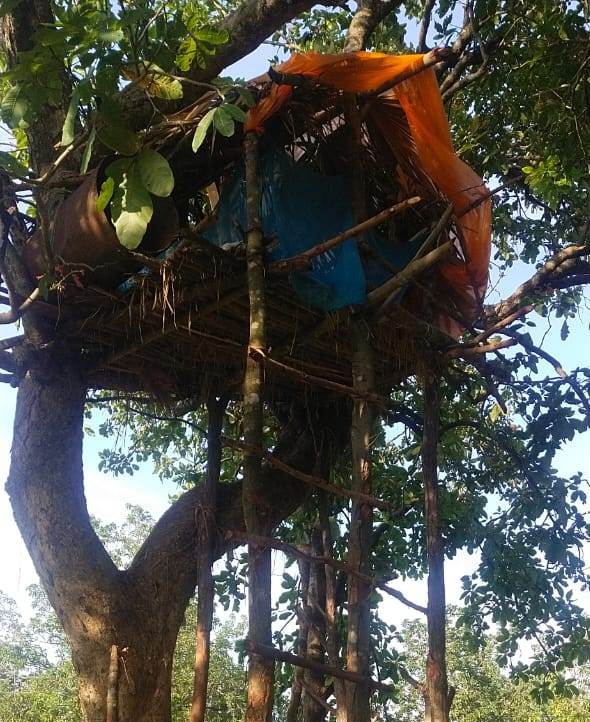Khamar: With man-elephant conflicts being a regular phenomenon in Khamar range of Pallahara block in Angul district, the farmers living in the range area are the worst affected. They have been spending sleepless nights atop ‘manchas’ (a platform built on wooden poles or on tress) to keep a watch on their crops.
‘We know spending nights at farmlands means inviting trouble. Many of us have been trampled to death by the marauding elephants. Yet, we have no choice. We have to save our crops that will see us through the year. So we put our lives at risk,” the hassled farmers said.
According to them, the locality coming under Khamar range of Deogarh forest division has been witnessing increased cases of man-elephant conflicts. Every year they are losing acres of crops to the elephants.
Even before the farmers have been able to compensate the losses they suffered last year, they are again facing the wrath of the pachyderms this year.
“Many villagers had gone outside for other jobs. Due to the outbreak of COVID-19 they had to come back to their respective villages as they lost their jobs. Now the only source of earning is through farming. So they cannot afford crop losses anymore,” said a local.
With forest department officials turning a blind eye to the development, resentment is brewing among the villagers of Shankhmur, Khamar, Badasada, Alori, Inchad, Kunjam and a few others panchayats.
“The forest department is doing nothing to protect us and our crops from elephants. So we have been forced to keep a watch on our crops during night. We have erected ‘manchas’ near our farmlands and from there we are guarding our crops,” the farmers observed. They added that the forest department has an elephant squad but it is ‘useless’.
The farmers said, many of them have fallen victims to attacks by elephant and other wild animals including snakes. Some of them have died and many have become physically challenged.
The plight is not limited to farmlands only but also to their villages. Wild elephants often stray into human habitations pulling down a portion of the house to feed on stored paddy, wheat, green gram, black gram and other crops.
Many villagers blamed the illegal sale of country-made liquor for elephant-man conflict. “There are some villages where people are engaged in preparing country-made liquor. ‘Mahua’ flower is one of the main ingredients to prepare the liquor. The smell of the flower attracts elephants to the villages. So the illegal distilleries should be brought down to check incidents of man-animal conflict” opined Sunil Sahu, a Khamar resident.
According to Pallahara, Zilla Parishad, member, Saroj Kumar Sahu, the forest department is solely to be blamed for the increasing incidents of wild animal attack and crop loss. “If the forest department takes proper care of the jungle then the elephants would not have to come out in search of food. As they do not have sufficient food in the forests, they enter human habitat,” he said.
Local CPI(M) leader, Meena Pradhan warned that there would be an agitation soon if the forest department does not take immediate step to address the problem.
When contacted, forester, Khamar range, Pradeep Satpathy said it is not possible to keep a watch on the entire area as the department is short-staffed.
“We are aware that the farmers are putting their lives in danger while protecting their crops. But we cannot do anything. We have no such provision to provide them with lights and firecrackers. Whatever possible on our part is being done for the animals and people,” he said.
PNN
